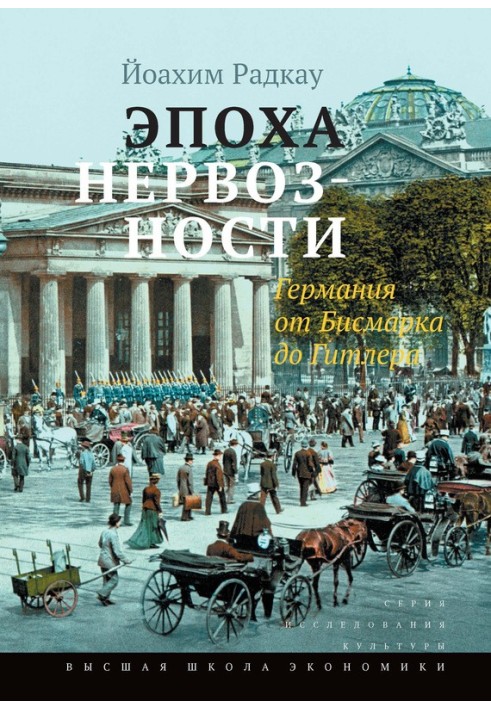The era of nervousness. Germany from Bismarck to Hitler
 Instant download
Instant download
after payment (24/7)
 Wide range of formats
Wide range of formats
(for all gadgets)
 Full book
Full book
(including for Apple and Android)
Technical progress and the sexual emancipation of modernity, which outstripped the mental capabilities of a person in the 19th century, launched “nervous” mechanisms in culture that expressed a heightened sense of the new world and required new methods of overcoming, which ultimately turned out to be so diverse and in many ways fatal. In this vein, the eminent German historian Joachim Radkau offers readers a unique cultural history of nerves in Germany. Fundamental research reveals a panorama of a grandiose era in which nerves determined both the then young branch of medical science and human everyday life. Based on rich archival material, Radkau describes in detail both the anamnesis and the epicrisis of the last 150 years of “nervous discourse” and asks the question of what this notorious “disease of the nerves” is - a cultural construct caused by turning points in history or a true experience of suffering, a passing fashion or a constant , individual or collective phenomenon? In search of answers, the book offers a fascinating model for interpreting political, cultural and personal history. The book is addressed to a wide range of readers - historians, cultural scientists, political scientists, social psychologists.
Data sheet
- Name of the Author
- Йоахим Радкау
- Language
- Russian
- Translator
- Наталия Феликсовна Штильмарк
Reviews
Вражаюче дослідження культурної історії Німеччини!
Книга "Епоха нервозності" від Йоахіма Радкау – це справжній шедевр, який занурює читача в складну та багатогранну епоху, що охоплює період від Бісмарка до Гітлера. Автор майстерно поєднує історичні факти з культурними аспектами, розкриваючи, як технічний прогрес і сексуальна емансипація вплинули на психічний стан суспільства. Радкау не лише аналізує "хворобу нервів" як культурний конструкт, але й ставить важливі питання про те, як ці явища вплинули на особистісний досвід людей. Завдяки багатому архівному матеріалу, читач отримує можливість заглибитися в деталі, які формували повсякденність німців у цей складний час. Книга стане в нагоді не лише історикам, але й усім, хто цікавиться культурологією, соціальною психологією та політичною історією. Це не просто наукове дослідження, а справжня подорож у часі, яка спонукає до роздумів про минуле, сучасність і майбутнє. Рекомендую всім, хто прагне зрозуміти глибокі механізми, що формують наше суспільство!












